[Weekender] Campaigns evolve over decades; image-based politics still continues
By Kim Yon-sePublished : May 5, 2017 - 16:50
About half of the current South Korean voters were holding voting rights in the historic 1987 election, when the direct election system was reintroduced after a long spell of military regimes from Park Chung-hee to Chun Doo-hwan.
The youngest voter group of that time are today’s voters in their 50s.
The youngest voter group of that time are today’s voters in their 50s.
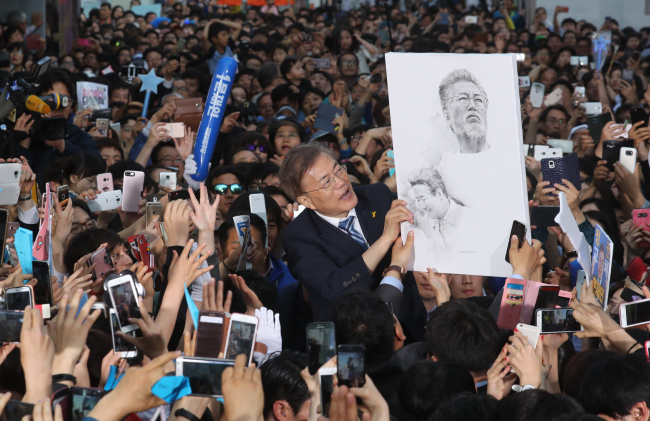
They remember the canvassing of the four major candidates -- Roh Tae-woo, Kim Young-sam, Kim Dae-jung and Kim Jong-pil. Most of their campaigning was delivering a speech in front of hundreds of thousands of spectators “at big squares, located in the center of big cities.”
The most popular location for candidates was a park in Yeouido, Seoul, where the National Assembly is located. A key strategy was to show off their power via the number of spectators, aired on TV, while there were allegations some spectators were paid to attend.
Violence sometimes occurred among spectators or proxies when the candidates visited other candidates’ home turf, particularly Busan, Daegu and Gwangju. There were televised news scenes of eggs thrown at candidates during their speech.
A dominant portion of the spectators, in particular, were older male voters. Most of all, it was nearly impossible for an ordinary person to shake hands with a candidate, and it was not easy to see them from a near distance among the jam-packed spectators.
The students and young voters in the late 1980s became more accustomed to street campaigning in the 1990s. Apart from parliamentary candidates in their constituencies, they could easily meet with presidential candidates on the back of development of transportations and candidates’ visit to a variety of places such as markets, colleges and districts where the underprivileged were residing.
Campaigns continued to evolve in the 2000s. Songs and dances of supporters of candidates drew attention from young voters, while spectators were allowed to easily access candidates’ speeches on the internet without attending rallies in person.
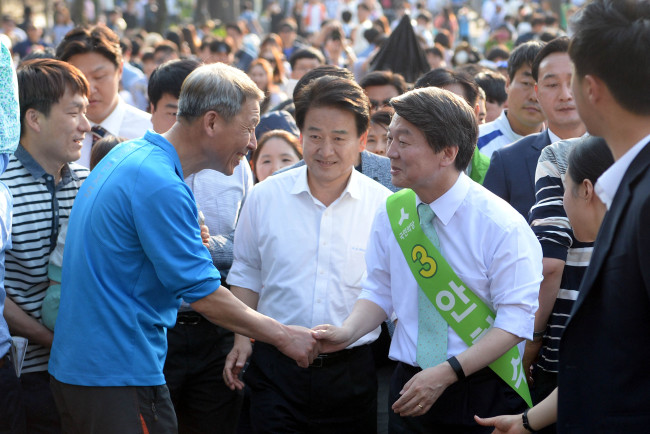
The currently middle-aged voters, who were in their teens and 20s in 1987, watch candidates on their mobile devices live. They know simultaneously the whereabouts of the politicians and talks between them and market vendors.
However, many of them raise the necessity of correcting the situation in which a habitual format -- involving visiting provincial cities with electioneering trucks and loudspeakers -- repeats every presidential, general and local election.
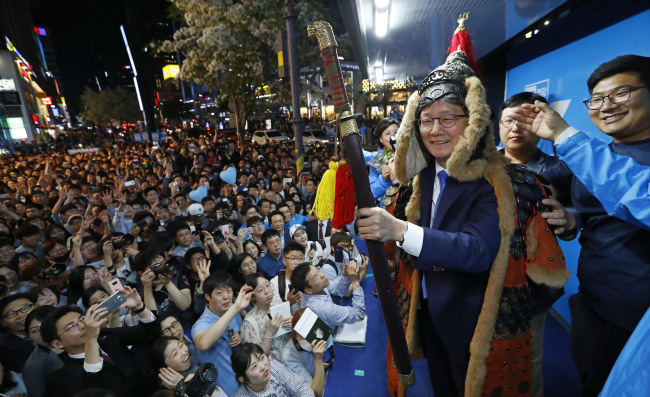
On foreign resident in Seoul contrasted the situation against the election atmospheres of Europe, saying campaigns are too boisterous here.
A Korean in his 50s picked familiarity as a main factor appealing to more young voters in present campaigns. “I feel democracy during election seasons. I could hardly see young female spectators decades ago,” he said. “Noise around residents is also acceptable because it is temporary.”
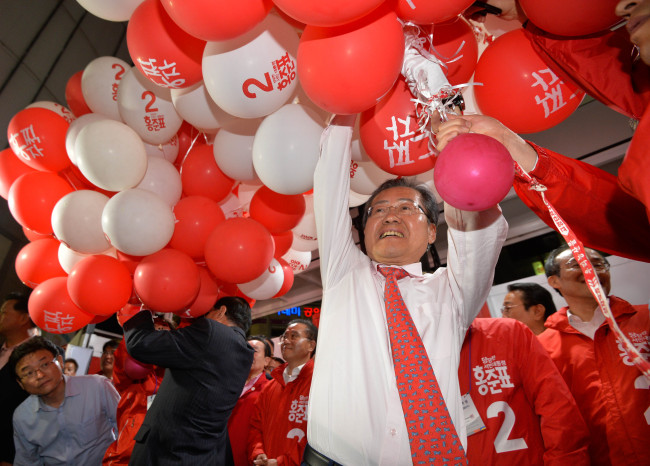
But he pointed to image-based politics as still being underway.
“Many people still prioritize the number of spectators gathering around candidates and support ratings. Despite the series of TV debates, I failed to catch the concrete vision of the candidate I had supported, if elected.”
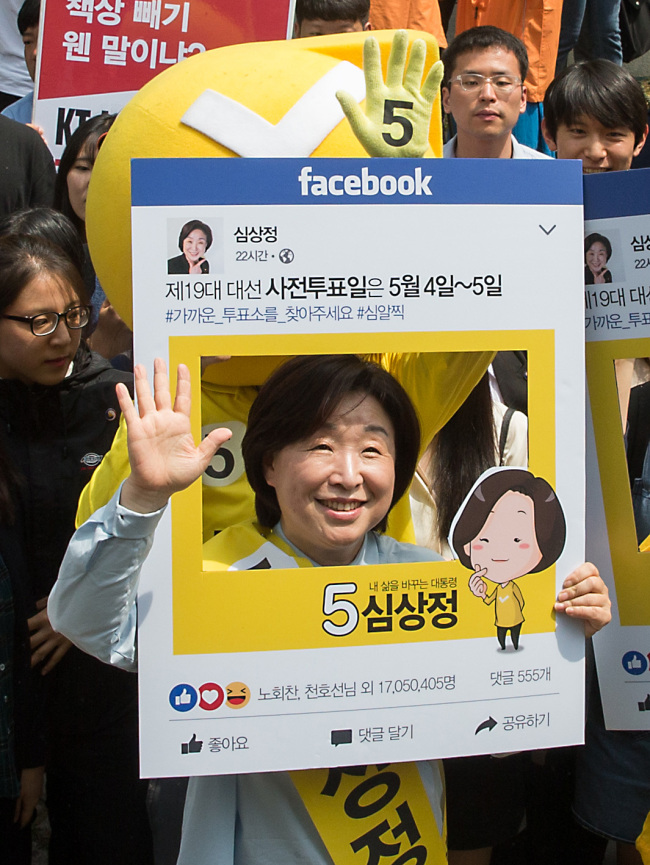
By Kim Yon-se (kys@heraldcorp.com)



![[Herald Interview] 'Amid aging population, Korea to invite more young professionals from overseas'](http://res.heraldm.com/phpwas/restmb_idxmake.php?idx=644&simg=/content/image/2024/04/24/20240424050844_0.jpg&u=20240424200058)












![[KH Explains] Korean shipbuilding stocks rally: Real growth or bubble?](http://res.heraldm.com/phpwas/restmb_idxmake.php?idx=652&simg=/content/image/2024/04/25/20240425050656_0.jpg&u=)

